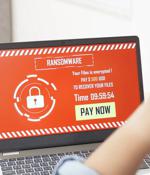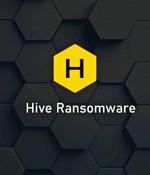Security News

The Cybersecurity and Infrastructure Security Agency and the Federal Bureau of Investigation warned US organizations today that attackers deploying Zeppelin ransomware might encrypt their files multiple times. The two federal agencies also shared tactics, techniques, and procedures and indicators of compromise to help security professionals detect and block attacks using this ransomware strain.

A new ransomware family called 'GwisinLocker' targets South Korean healthcare, industrial, and pharmaceutical companies with Windows and Linux encryptors, including support for encrypting VMware ESXi servers and virtual machines. On Wednesday, Korean cybersecurity experts at Ahnlab published a report on the Windows encryptor, and yesterday, security researchers at ReversingLabs published their technical analysis of the Linux version.

A new ransomware family dubbed Luna can be used to encrypt devices running several operating systems, including Windows, Linux, and ESXi systems.Discovered by Kaspersky security researchers via a dark web ransomware forum ad spotted by the company's Darknet Threat Intelligence active monitoring system, Luna ransomware appears to be specifically tailored to be used only by Russian-speaking threat actors.

The duration of ransomware attacks in 2021 averaged 92.5 hours, measured from initial network access to payload deployment. In 2020, ransomware actors spent an average of 230 hours to complete their attacks and 1637.6 hours in 2019.

In what is either a creepy, weird spin on Robin Hood or something from a Black Mirror episode, we're told a ransomware gang is encrypting data and then forcing each victim to perform three good deeds before they can download a decryption tool. The so-called GoodWill ransomware group, first identified by CloudSEK's threat intel team, doesn't appear to be motivated by money.

The vendor's research team Surge today published research on how long it takes 10 of the big ransomware families including Lockbit, Conti, and REvil to encrypt 100,000 files. While the criminal gangs' speeds varied, Surge found the median ransomware variant can encrypt nearly 100,000 files totaling 53.93GB in 42 minutes and 52 seconds.

Let's Encrypt, a non-profit organization that helps people obtain free SSL/TLS certificates for websites, plans to revoke a non-trivial number of its certs on Friday because they were improperly issued. In a post to the Let's Encrypt discussion community forum, site reliability engineer Jillian Tessa explained that on Tuesday, a third party reported "Two irregularities" in the code implementing the "TLS Using ALPN" validation method in Boulder, its Automatic Certificate Management Environment software.

Let's Encrypt will begin revoking certain SSL/TLS certificates issued within the last 90 days starting January 28, 2022. As a non-profit certificate authority run by Internet Security Research Group, Let's Encrypt provides X.509 certificates for Transport Layer Security encryption at no cost.

When only the utmost privacy will do for the messages you exchange by e-mail, you need a service that protects them entirely, but many additional privacy and security features are a big help. If you cherish your privacy and security and are looking for an alternative to something like ProtonMail, then the CTemplar End-to-End Encrypted Email Prime Plan: Lifetime Subscription should be exactly what you need.

The Hive ransomware gang now also encrypts Linux and FreeBSD using new malware variants specifically developed to target these platforms. The ransomware's Linux version also fails to trigger the encryption if executed without root privileges because it attempts to drop the ransom note on compromised devices' root file systems.